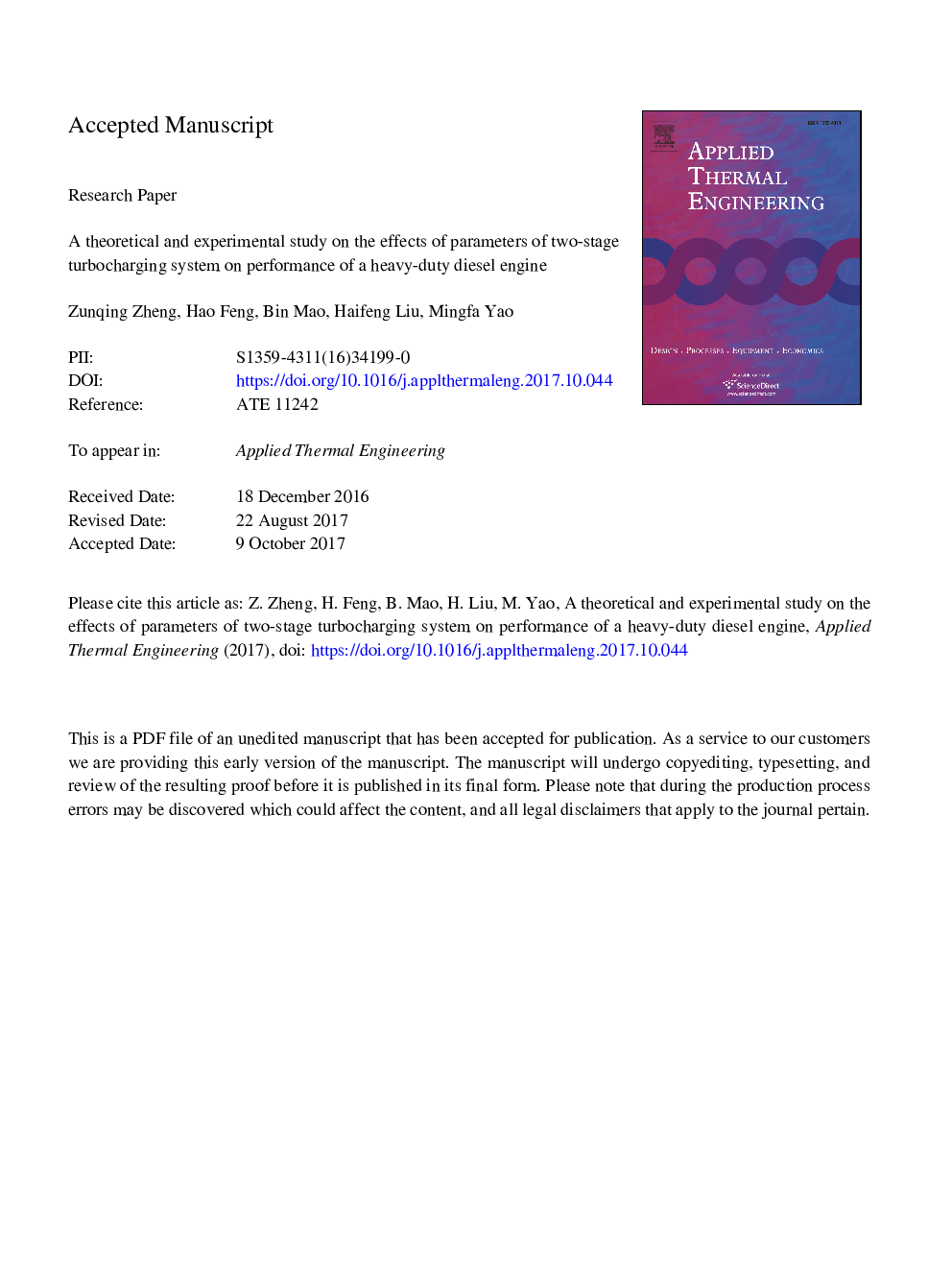| کد مقاله | کد نشریه | سال انتشار | مقاله انگلیسی | نسخه تمام متن |
|---|---|---|---|---|
| 7046535 | 1457100 | 2018 | 26 صفحه PDF | دانلود رایگان |
عنوان انگلیسی مقاله ISI
A theoretical and experimental study on the effects of parameters of two-stage turbocharging system on performance of a heavy-duty diesel engine
ترجمه فارسی عنوان
یک مطالعه تئوری و تجربی بر اثرات پارامترهای سیستم توربو شارژ دو مرحله ای بر عملکرد یک موتور دیزلی سنگین
دانلود مقاله + سفارش ترجمه
دانلود مقاله ISI انگلیسی
رایگان برای ایرانیان
کلمات کلیدی
دو مرحله توربوشارژ، خنک کننده بین مرحله ای توزیع نسبت فشار، راندمان خنک کننده، کاهش پمپاژ،
موضوعات مرتبط
مهندسی و علوم پایه
مهندسی شیمی
جریان سیال و فرایندهای انتقال
چکیده انگلیسی
The paper presents a theoretical analysis and experimental study on the effects of parameters of two-stage turbocharging system on engine performance. A thermodynamic model was developed base on the first and second laws of thermodynamic to analyze the effects of different turbocharging parameters on engine boost pressure and pumping loss qualitatively. The numerical analysis results show that pressure ratio distribution (PRD) of compressors, inter-stage cooler, total turbine expansion ratio and turbine bypass or equivalent efficiency are the dominant factors affecting engine boost pressure, pumping loss and consequently the engine performance. Subsequently, those theoretical findings were applied in the matching and architecture optimization of a regulable two-stage turbocharging system, which comprises a high-pressure variable geometry turbocharger (VGT), a low-pressure fixed geometry turbocharger and an inter-stage cooler, for a heavy-duty diesel engine. The experiment was designed with a well matched two-stage turbocharging system to validate the theoretical findings and to optimize the engine fuel efficiency. The results indicate that inter-stage cooler does improve engine fuel efficiency by increasing intake manifold pressure and reducing pumping loss. Increasing the total turbine expansion ratio by reducing flow area of high-pressure stage VGT led to higher engine boost pressure, increased PRD and turbocharging efficiency variation, which results in increased pumping loss. The best fuel efficiency can be realized by compromising the engine boost pressure and pumping loss.
ناشر
Database: Elsevier - ScienceDirect (ساینس دایرکت)
Journal: Applied Thermal Engineering - Volume 129, 25 January 2018, Pages 822-832
Journal: Applied Thermal Engineering - Volume 129, 25 January 2018, Pages 822-832
نویسندگان
Zunqing Zheng, Hao Feng, Bin Mao, Haifeng Liu, Mingfa Yao,
